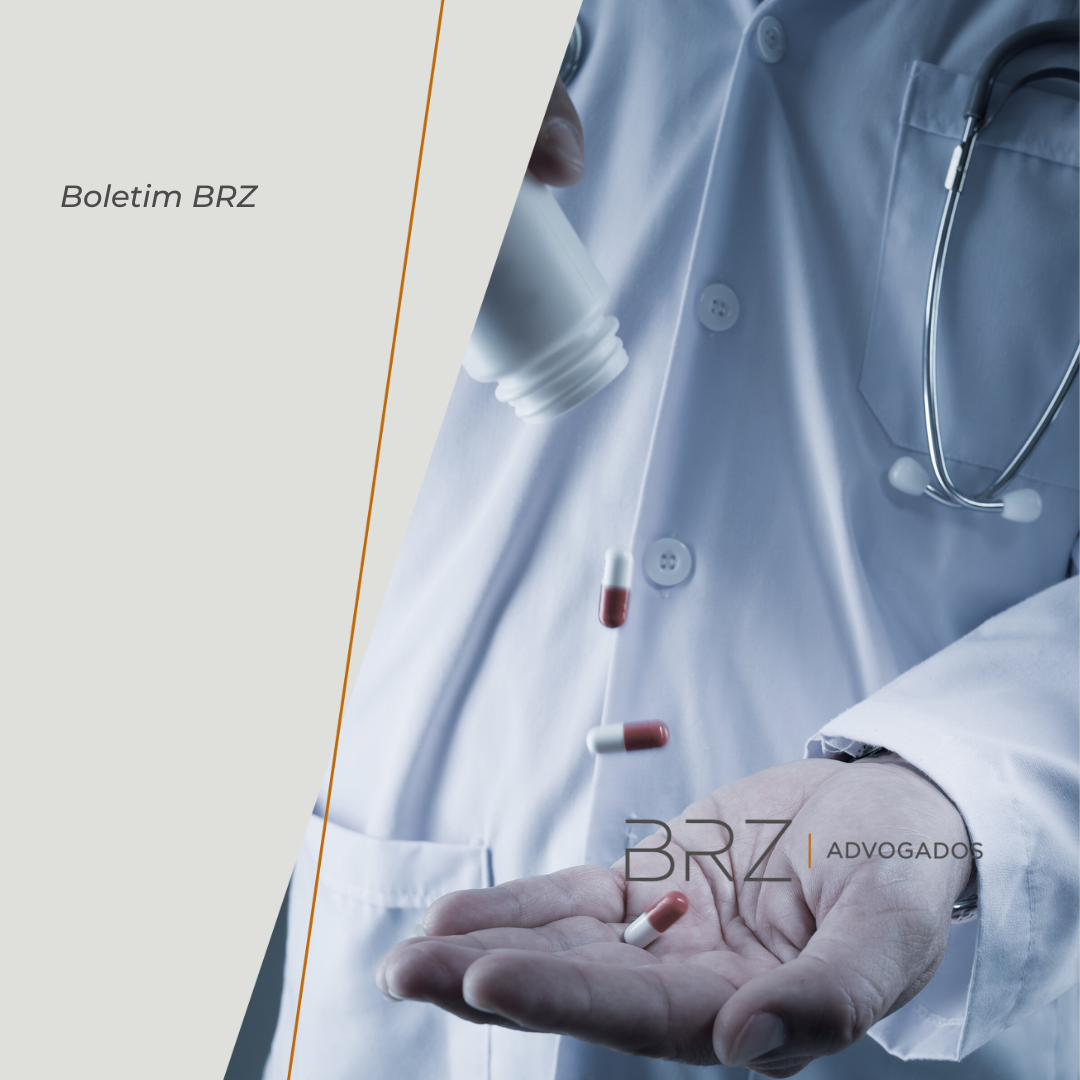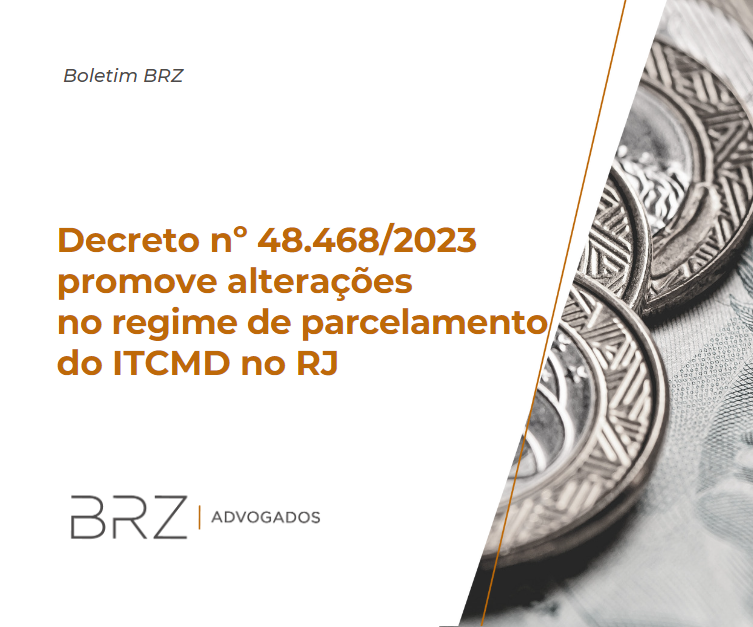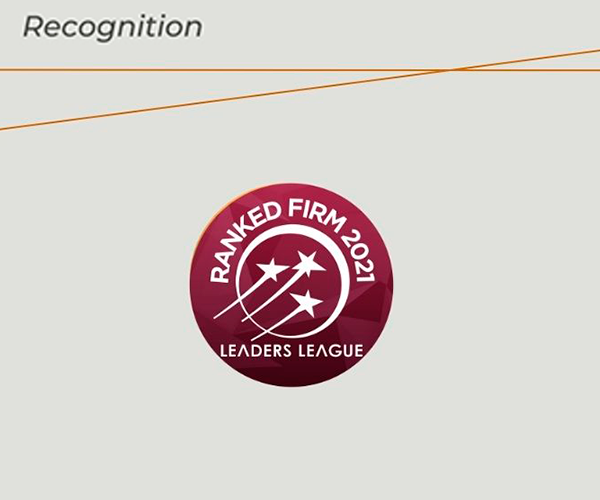ICMS/Difal: a discussion also for taxpayers

Published in January this year, Law No. 190/2022, which regulates the collection of the tax rate differential (Difal) levied on operations and services that send goods and services to another state in the federation, has been the subject of several discussions in the legal field. In this sense, our partner Renata De Paoli Gontijo and lawyers Pedro Teixeira and Renata Guimarães published an article in the portal of Revista Consultor Jurídico (ConJur) addressing the Difal collection with respect to aspects that transcend this discussion in light of the ruling by the Federal Supreme Court and the application of the principle of precedence, given that it covers sales to ICMS taxpayers.
Check out the full analysis:
https://lnkd.in/eJyZfb8d
OPINION
By Renata de Paoli Gontijo, Pedro de Mello Martins Teixeira and Renata Guimarães
Supplementary Law No. 190/2022 (SL No. 190/2022), published in January this year, with the aim of (finally) regulating the collection of the rate differential (Difal) levied on operations and services that send goods and services to another state in the country, has been the subject of much discussion in the legal area because the law states it shall be in force after a 90-day period, without, however, complying with the classical constitutional principle of annuality (a law that creates or increases a tax can only enter into force in the following year or after 90 days, whichever comes first).
The fact that SL No. 190/2022 was only sanctioned in 2022, in the turn of the fiscal year, generated a rush of taxpayers to the courts seeking to avoid the collection of Difal on interstate remittances intended for the final consumer in the 2022. In this sense, many rulings — in injunction reliefs or in sentences — have already [1] acknowledged the taxpayer’s right to collect Difal only in 2023.
However, it would seem that one argument in this regard has been forgotten (or at least unnoticed): the collection of Difal on remittances to ICMS taxpayers. Next, we shall comment so as to demonstrate that the differential of ICMS rates, in the event of remittances to taxpayers, may also only be required in 2023 on.
SL No. 190/2022 filled a legislative gap acknowledged by the Federal Supreme Court when ruling on the Direct Action for the Declaration of Constitutionality No. 5469 (ADI No. 5469) and Extraordinary Appeal 1,287,019 (RE No. 1,287,019), the latter judged under the system of general repercussion.
At the time, the following was ruled: “The collection of the rate differential referring to the ICMS, as introduced by Constitutional Amendment No. 87/2015, presupposes the edition of a supplementary law conveying general rules.” The court chose to modulate the effects of that decision, whereby the unconstitutionality of the clauses decided by the STF would only take effect on January 1st, 2022.
Although the specific case analyzed by the STF is restricted to interstate operations involving final non-taxpayers consumers (collection hypothesis brought by Constitutional Amendment No. 87/2015), we understand that the requirement of a supplementary law also applies to operations destined for taxpayers. This is because, in STF’s view, making a supplementary law on tax matters would be essential to: 1) regulate conflicts of jurisdiction (in this case, conflicts involving the States of destination and origin of the goods or services); and 2) establish general rules for the collection of taxes, which must necessarily include the definition of the taxable event, the taxpayer and the tax base.
It so happens that the Difal related to operations intended for taxpayers is being charged by the States based only on their own state laws. Supplementary Law No. 87/96, before it was amended by SL No. 190/96, at no time established the minimum criteria to be observed by the states for the collection of the difference between the internal and interstate rates [2]. Such criteria — definition of taxpayer, taxable event, tax calculation basis — surfaced only with the advent of SL No. 190/2022.
Therefore, the legislator sought, by means of SL No. 190/2022, to fill in the gaps left the lack of regulation for the collection of Difal in operations intended for non-taxpayers and that and the utter absence of general rules regarding the operations for ICMS taxpayers. Were this not the case, the legislator would not have bothered to address this second situation, unless it meant to change the criteria that the states already comply with by means of their respective laws — which did not occur.
Thus, it is possible to conclude that the Difal levied on operations destined for taxpayers could only be instituted by the states after the enactment of SL No. 190/2022, which obviously must follow the aforementioned constitutional principle of annuality. With that, in the same manner as Difal for non-taxpayers, it could only be enforced after January 1st, 2023.
There is, however, an important distinction to be made: although the rationale used by the STF in ruling on ADI No. 5,469 and RE No. 1,287,019 is analogous with regard to the need for a supplementary law to be made, the modulation carried out by the STF does not apply to the Difal charged in remittances to taxpayers, since the case analyzed — and the decision — did not involve this hypothesis.
In view of all the above, we understand that it is possible to judicially question not only the Difal collection in 2022 on remittances to non-taxpayers, but also the Difal collection on transfers to ICMS taxpayers and, in the latter case, the refund of the amounts unduly collected in the five years prior to the filing of the lawsuit claiming these amounts is legitimate.
In light of the above, taxpayers who have purchased, from suppliers located in other states, goods for use and consumption, or intended as a fixed asset (provided that they have not been credited with the tax) may file a lawsuit to recover these amounts. Depending on the economic activity carried out by these legal entities, the amounts may be relevant.
[1] See cases No. 1057052-40.2021.8.26.0053, No. 1000409-28.2022.8.26.0053, No. 1000415-35.2022.8.26.0053, No. 1001443-38.2022.8.26.0053, pending before the Courts of the State of São Paulo. In the Federal District, an injunction relief was given in favor of this understanding in case No. 0700137-46.2022.8.07.0018.
[2] The wording of SL No. 87/96 before it was amended by SL No. 190/2022 determines that state law may attribute to the taxpayer the responsibility for paying the difference between internal and interstate rates in operations and services that send goods and services to the final taxpaying consumer located in another State. However, we understand that the provision (article 6, paragraph 1) refers to a modality of tax substitution, without, on the other hand, determining the general rules required by the Federal Constitution.
#difal #taxpayers #icms #taxlaw #brzadvogados



